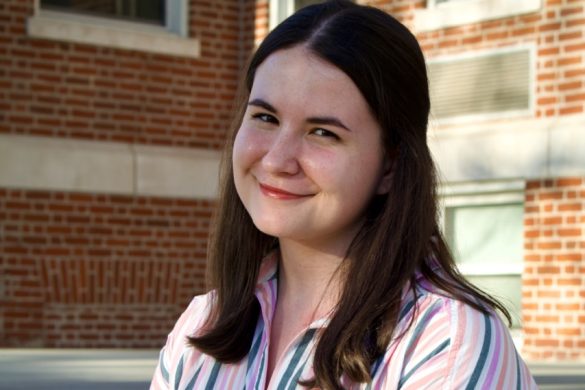Humans are unique creatures capable of a wide range of emotions and behaviors. No two people are alike, and this makes our everyday interactions matchless.
We are constantly learning new things, going new places and reaching new milestones. Personalities are special and help drive us through life. But personality occurs and forms over a broad spectrum, so why would someone want to limit these unique traits that are forever developing?
As college students, we need to recognize the difference between embracing aspects of a personality and latching on to a trait as the be-all and end-all of identity. We should not be defined this way.
According to University of Indianapolis Health and Counseling Center staff psychologist Aarika White, personality exists on a continuum that does not have clear boundaries. There are many theories about personality, but White identifies with the theory that all personality traits are preferences on how one acts. This theory is about awareness.
“Understanding yourself and how you fit in with the world [is important to developing personality],” White said. “Understanding how your preferences can influence your reactions to different situations, understanding how other people’s preferences and styles may interact with you, can help reduce conflict, and can help you communicate your needs better.”
A big problem I see among students is identifying as a certain type of person. The terms introversion and extroversion get thrown around like dirty words, when identity is much bigger than that. White refers to the popular Myers Briggs test as a good indicator of how individuals will react in situations. In this test, introversion and extroversion are defined as the way in which a person gets his or her energy in social situations. White believes that this type of testing allows individuals to become more aware of their personality preferences.
“It [the test] can also help you challenge yourself and understand why certain situations or certain aspects of a situation are challenging for you, why that may be hard or you don’t like it. And then you can kind of push yourself,” she said.
White also said that the results of this specific test can be hard to understand and suggests that testing should be done with a professional who can guide an individual through what the results really mean.
I see problems arise when people do not let professionals help them. Instead they take tests on Facebook, read articles online, look at a picture on social media and latch on to the idea that these traits define their personalities and in turn dictate their actions.
It is not healthy to limit personality in this way. Personality and behaviors change, sometimes day to day. Just because a person prefers to stay at home, does not mean that person must fight the urge to go out. People should not prevent themselves from exploring every part of their identity. The beauty of life is that every day can bring a momentous discovery that changes a person’s way of thinking.
Not everyone can come to this conclusion. Development comes at different times in a person’s life. It is hard to realize that a person may not hold the same beliefs they did a couple of months ago. No one should feel that there is no room to grow.
“It can be very helpless for the individual who does not realize that there are ways they can challenge themselves. It may also create some judgments towards others who have different personality styles or interaction styles,” White said. “If the individual thinks their way is the only way and doesn’t understand there is this broad spectrum of people’s preferences, then they may not understand where someone else is coming from.”
These judgments create divisions. Differences should be embraced. No one’s preferences are wrong. As college students, we may think we must have our lives figured out by the end of these four years. But White believes that the boundaries between personal identity and career identity may get blurred.
“I think maybe what contributes to that [confusion] is the value of career as part of our identity. And I think that’s a cultural factor,” White said. “So when we’re going to college, we’re asked to define our career and that maybe sometimes the boundaries get blurred between our identity as an individual. But I think what we do is just one aspect of who we are.”
The scary fact is that we will never stop growing. Career paths change, which no one wants to imagine, but it happens.
Do not be afraid to challenge your way of thinking every day. If you consider yourself someone who does not like loud places with many people, take baby steps into a social situation that involves a more crowded space. The same thing applies on the other end of the spectrum. If you find yourself needing to be around people a majority of the time, take baby steps into exploring time alone.
Exploration builds confidence. Even if your preferences stay the same, at least you can know you tried.








